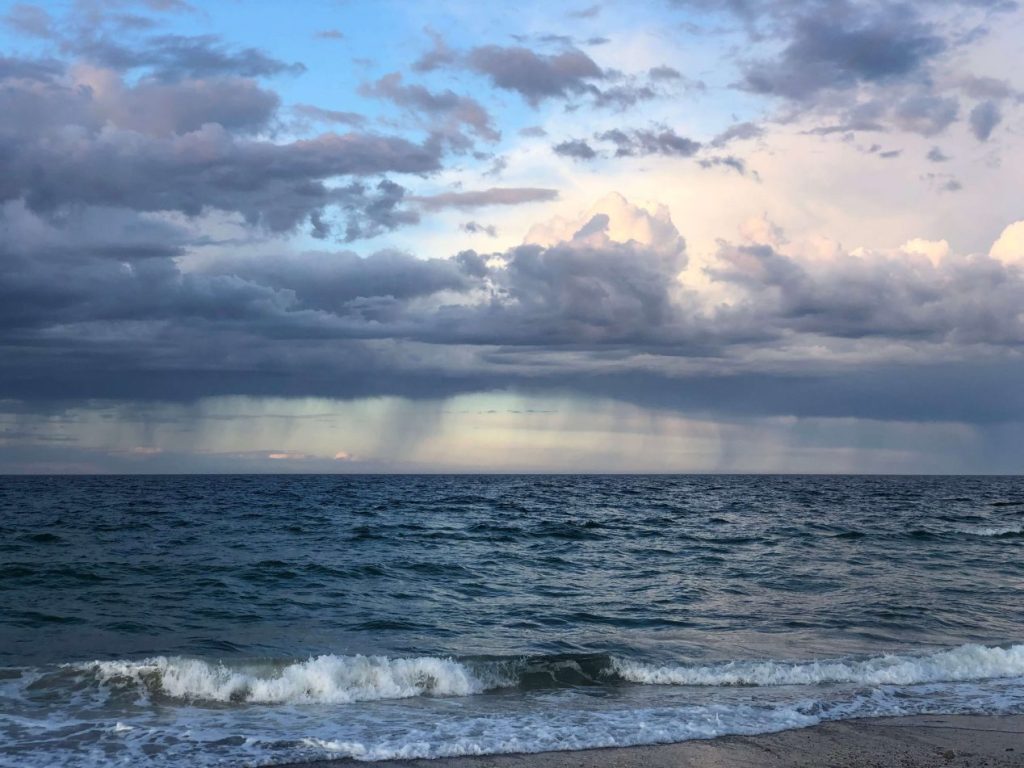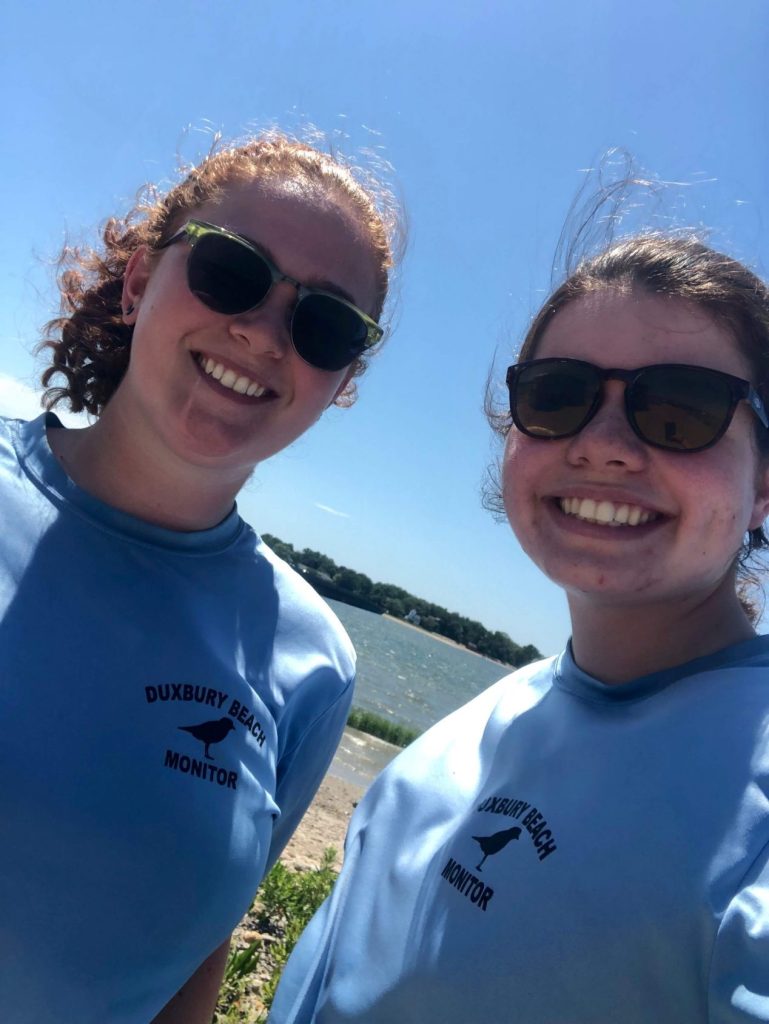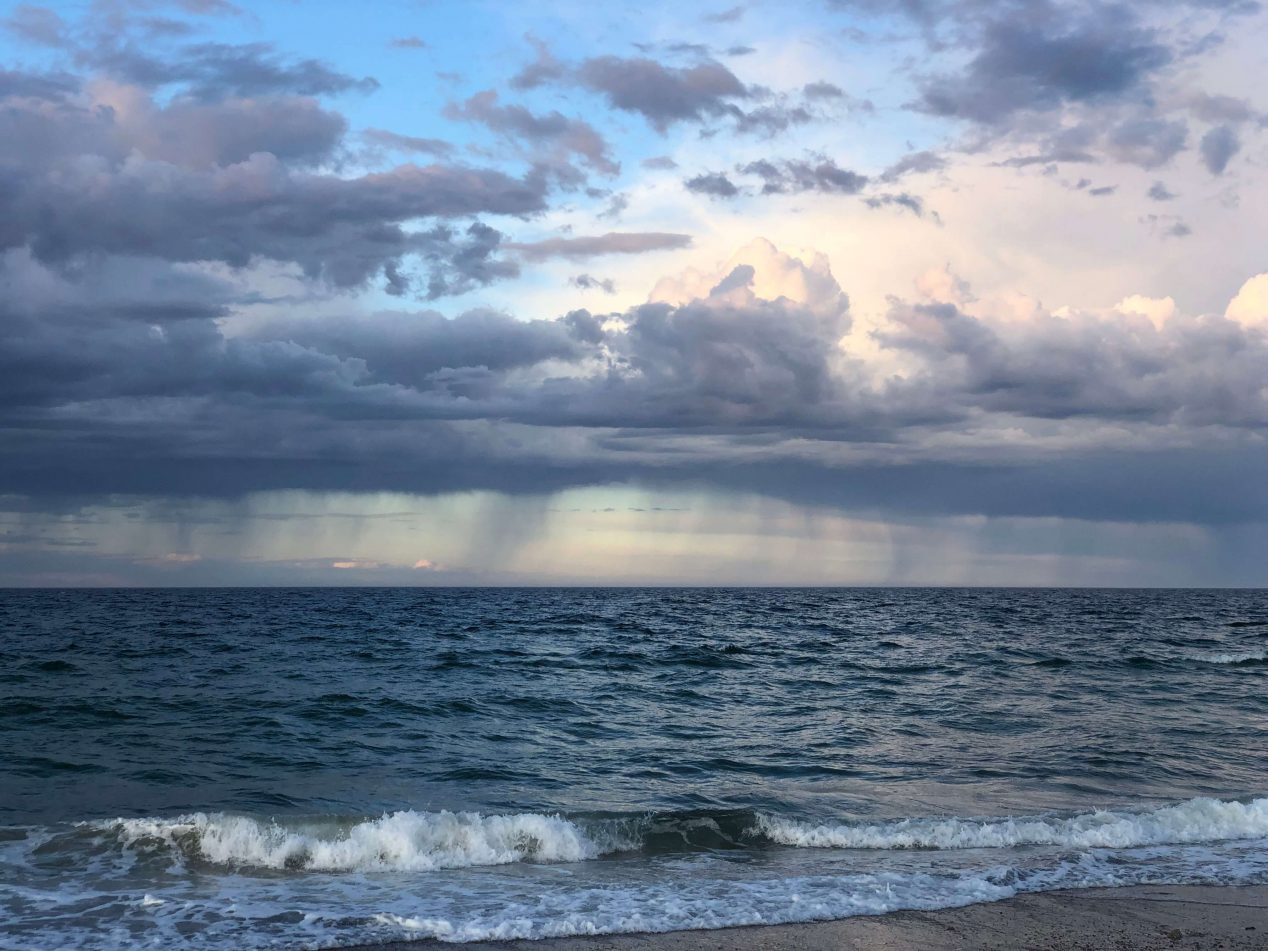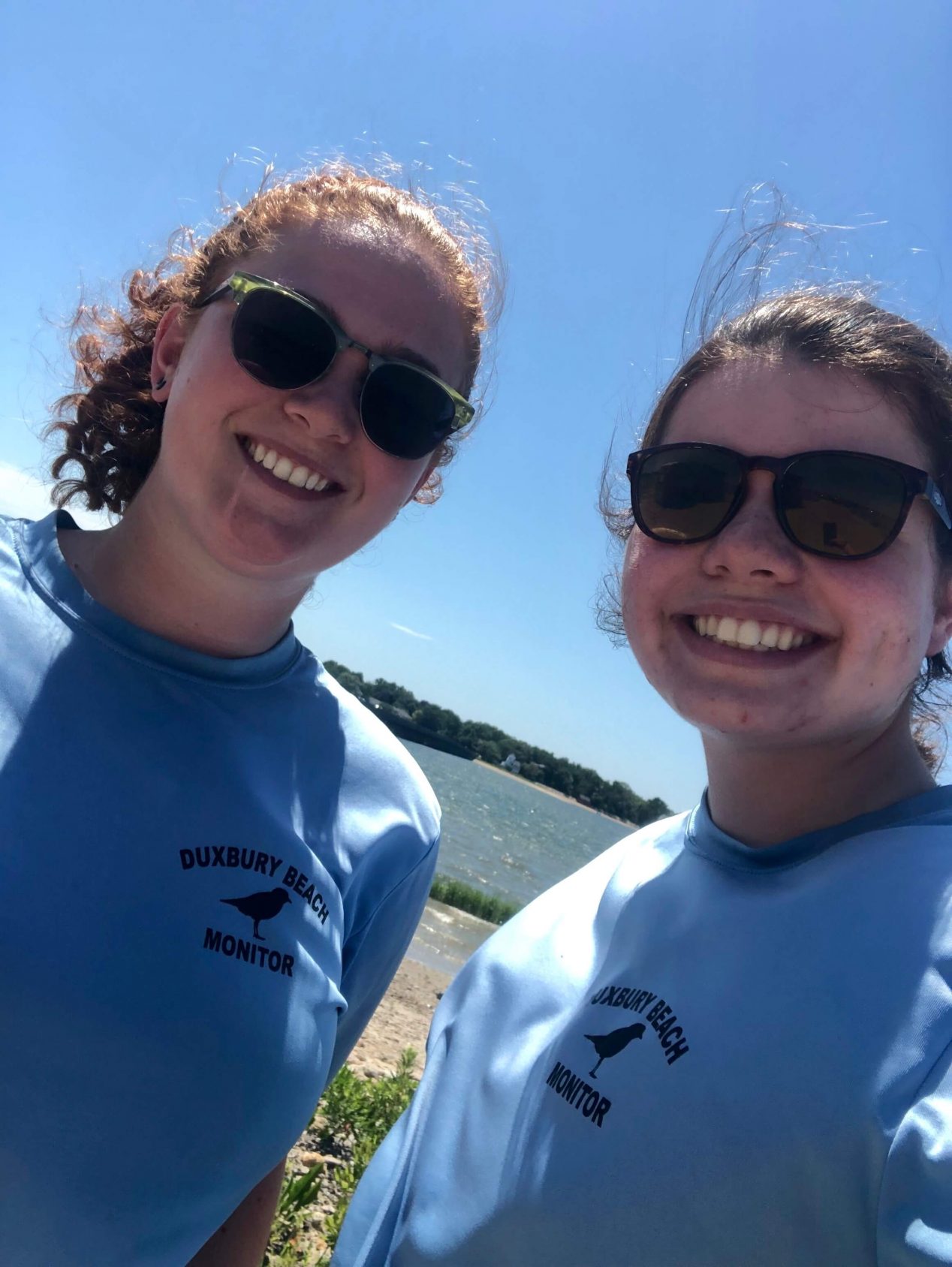Denise Cole & Maeve Studholme
This past summer, Denise Cole, a rising sophomore, and Maeve Studholme, a rising sophomore and an EES Ambassador, observed wildlife as Shorebird Monitoring Interns at Duxbury Beach, near their hometowns in Massachusetts. During their first year of college, they took EES 117, an introductory course for EES students. During this course, they were taught to find EES related jobs, and by winter break, Denise and Maeve had applied to work together in Duxbury over the summer.
Denise and Maeve monitored endangered shorebirds and enforced beach rules to maintain a clean and healthy environment. They collected data on two species of shorebird—the endangered Piping Plover and the threatened Least Tern. For the Piping Plovers, Denise and Maeve observed broods or groups of chicks, and their parents, over 20-minute intervals to note behaviors such as foraging. For the Least Terns, Denise and Maeve counted the numbers of adults and chicks within and outside roped-off areas, also using the 20-minute observation intervals. When the plover and tern chicks fledged or left their nests, Denise and Maeve then focused on enforcing beach rules pertaining to the birds, cleaned up trash and removed invasive plant species.
Denise and Maeve found their trash collection shifts were particularly eye-opening because they highlighted just how much pollution washes up on a beach, and were reminded of one of their classes from the first-year EES curriculum. In EES 100 (Human Population and the Global Environment), the class considered whether plastics that become part of earth’s sediments and eventually its stratigraphic record will be considered an identifier for the Anthropocene, an era in which humans are the dominant influence on the environment. Maeve and Denise were reminded of this idea, and it connected with them while they were cleaning beaches this summer.
To see more photos from Duxbury Beach and its wildlife, visit local photographer @stewartboston and the Duxbury Reservation on Instagram @duxburybeachreservation.




